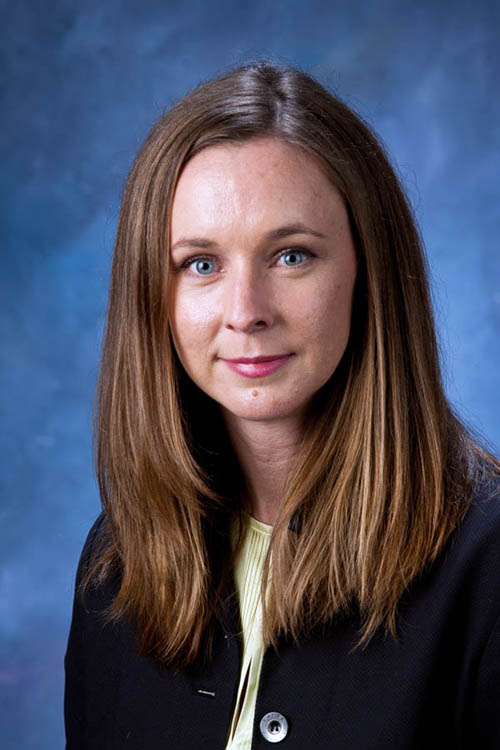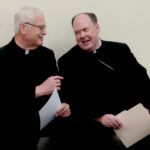By Lisa Powell
Another innocent black man was killed last week. Terence Crutcher’s car stalled out in the road. His hands were raised, but he was approached as a criminal, tazed, and shot dead. Before becoming a student of liberation theology, I would have been saddened, maybe even outraged, at the apparent disposability of black life in our nation. As a devout Christian, I knew that God cared about those suffering, and so I strove to be a person of compassion and charity. However, it wasn’t until I was introduced to the theology of Father Gustavo Gutierrez that I began to understand that God’s attention to those who suffer is not some peripheral quality of a loving God but is the actual heart of God, revealed in the history of God’s relationship with Israel and in the person of Jesus Christ. It is not an attribute of God to care about the suffering African American community in our nation; it is the very nature of God. God’s being exists in opposition to injustice.
Before reading liberation theology, I understood the Gospel to be primarily about my “personal relationship” with God, which was hindered by a variety of sins: my tendency to think prideful thoughts and foster jealousies or greed or anger or whatever vice entraps one. It was a kind of narcissistic Christianity that had me obsessed with introspection to identify and eradicate every sin in a quest for holiness, which is what I understood to be “Christ-like.” But the Christ I had before me was a gentle, spiritualized Jesus whose mission was to achieve a path for forgiveness and union with God. The world was a spiritual gymnasium, where we exercise our souls to prepare for that beatific vision. Thus, my religion was foundationally escapist, with some acts of charity thrown in. I did not recognize how much the Gospel was also about my relationship with others; nor did I understand the complexity of a Gospel that declares liberation from bondage.

My bondage to sin includes being bound up in despicable evil systems that grant me certain worldly benefits or advantages at the expense of others on the underside of these same systems. Thus, my liberation, my salvation, is inextricably bound up with the liberation of those around me, and so by working alongside oppressed communities to undo these sinful systems for the real material liberation of suffering humanity, I am also participating in my liberation from these systems. Liberation isn’t only about forgiveness of sins, but also real, historical liberation in God’s affirmation of life. It is liberation for those whose poverty brings them death. And it is also liberation from entrapment in systems that create and perpetuate this death-dealing poverty.
So often people talk and write about “the poor” as an abstract, almost romanticized category of people who live closer to God, as if these people just “live simply.” Fr. Gutierrez reminds us that poverty isn’t just “simple living” but actually means death. It refers to the 22,000 children who die every day because of poverty. Or the 800 million people on the planet who are literally starving today. And yet in the face of this, Fr. Gutierrez reminds us that God is the God of Life. The revelation of God throughout the Old and New Testaments demonstrates a God opposed to these forces of death and the systems that perpetuate death: physical, material, and spiritual death. God offers life, and not just life in paradise, somewhere far removed from here, but full, abundant life in this world. God’s grace isn’t reserved for salvation. God’s grace begins with the act of creation and gift of life itself.
Jesus explains exactly what his mission is in Luke 4, reading from the book of Isaiah, when he says he was anointed: “to proclaim good news to the poor, freedom for the prisoner, and recovery of the sight for the blind, and to set the oppressed free.” And that is where Jesus is still: proclaiming freedom and life among the poor, the oppressed, the outcast and the imprisoned. If we are so eager to commune with Jesus, one sure place to find him is anywhere people are struggling to affirm their lives and human dignity. If we are seeking union with God, we should join God in this mission to liberate the prisoner, the oppressed and the poor. We aren’t living in solidarity with the poor by reciting: “God’s preferential option for the poor;” we are only practicing solidarity so much as we foster true friendship with actual human beings who are materially poor. We don’t care for the poor because we are supposed to be nice; we side with the poor because we want to align ourselves with God, and that is where God is. We don’t just say all lives matter; we actively oppose the forces of death that seek to destroy the lives of black brothers and sisters because God is the God of life.
(Lisa Powell is associate professor of theology at St. Ambrose University in Davenport.)











